
Miletus symethus, the great brownie, is a small butterfly found in India that belongs to the lycaenids or blues family. The species was first described by Pieter Cramer in 1777.

Erebia epistygne, the spring ringlet, is a species of butterfly in the family Nymphalidae. It is found in France and Spain. Its natural habitat is temperate grassland.

Deuterocopus atrapex is a moth of the family Pterophoridae described by Thomas Bainbrigge Fletcher in 1909. It has been recorded from Sri Lanka, Assam, Selangor, the Tenasserim Hills, south-eastern Borneo, Ternate, Ambon Island, Batian, southern Sulawesi, the Sangihe Islands, Halmahera, Neu Pommern, northern New Guinea, the Kei Islands, the D'Entrecasteaux Islands and Queensland.

Cosmopterix lespedezae is a moth of the family Cosmopterigidae. It is known from the United States.

Cosmopterix pulchrimella, the beautiful cosmopterix moth, is a moth of the family Cosmopterigidae. It is known from the United States and Canada. It is also present in the Palearctic realm, where it is known from the Mediterranean Basin, from Portugal to the western Transcaucasus, north to Switzerland and Hungary. It has also been recorded from the Azores, the Canary Islands and Madeira. It has recently been found in southern England.

Acraea jodutta, the jodutta acraea, is a butterfly in the family Nymphalidae. It is found in Guinea, Sierra Leone, Liberia, Ivory Coast, Ghana, Togo, Nigeria, Cameroon, Equatorial Guinea, São Tomé and Príncipe, Gabon, the Republic of the Congo, the Central African Republic, Angola, the Democratic Republic of the Congo, Sudan, Uganda, Kenya and Ethiopia.

Epicephala microcarpa is a moth of the family Gracillariidae first described by Hou-Hun Li in 2015. It is found in the Chinese provincies of Guangxi and Hainan and in Mumbai, India.
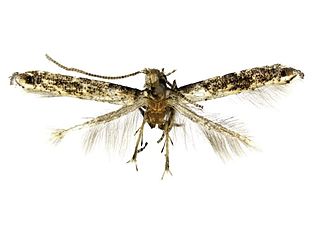
Epicephala laeviclada is a moth of the family Gracillariidae first described by Hou-Hun Li in 2015. It is found in the Chinese provinces of Guangxi and Hainan.
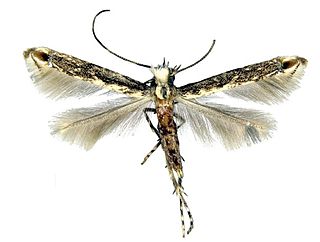
Epicephala tertiaria is a moth of the family Gracillariidae first described by Hou-Hun Li in 2015. It is found in the Chinese provinces of Guangdong and Guangxi.

Epicephala domina is a moth of the family Gracillariidae. It is found in China (Hainan).

Epicephala impolliniferens is a moth of the family Gracillariidae. It is found in China (Hainan).
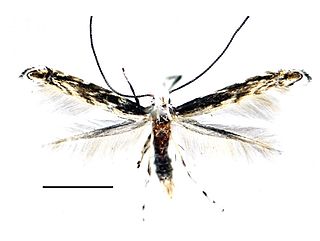
Epicephala camurella is a moth of the family Gracillariidae. It is found in China (Hainan).

Epicephala angustisaccula is a moth of the family Gracillariidae. It is found in China (Hainan).
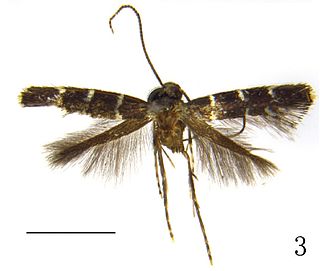
Metriochroa alboannulata is a moth of the family Gracillariidae. It is found in China (Jiangxi).
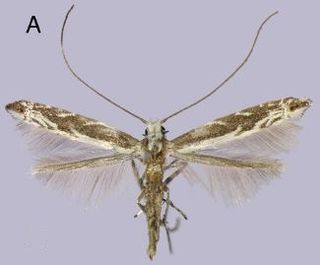
Epicephala anthophilia is a moth of the family Gracillariidae. It is found on a few islands with high elevation in the Ryukyu Archipelago (Amami Island and Okinawa Island). The host plant, Glochidion acuminatum is distributed throughout Southeast Asia from southern Japan to India, so this species is likely to be found in other parts of the host plant's range.

Epicephala perplexa is a moth of the family Gracillariidae. It is found on the Ryukyu Archipelago.
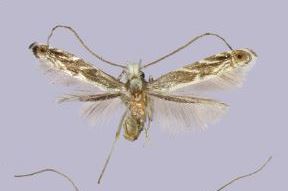
Epicephala obovatella is a moth of the family Gracillariidae. It is found in the warm temperate to subtropical regions of Japan and in Taiwan.
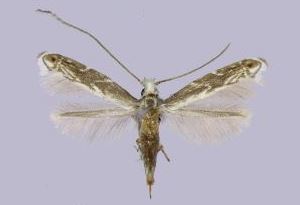
Epicephala corruptrix is a moth of the family Gracillariidae. It is found on the Ryukyu Archipelago.
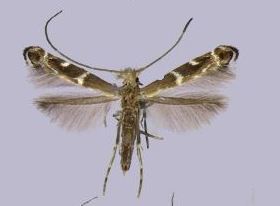
Epicephala anthophilia is a moth of the family Gracillariidae. It is found on the Ryukyu Archipelago.
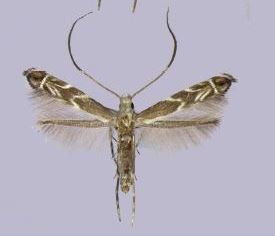
Epicephala nudilingua is a moth of the family Gracillariidae. It is known from three populations in Tochigi, Tokyo and Oita Prefecture, Japan. The host plant is widespread in the temperate regions of Japan and other parts of East Asia, so the species is likely to be found elsewhere.















